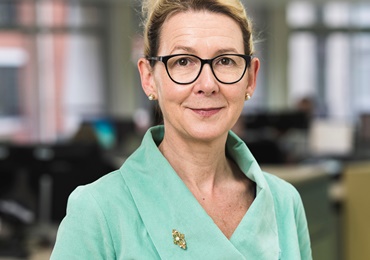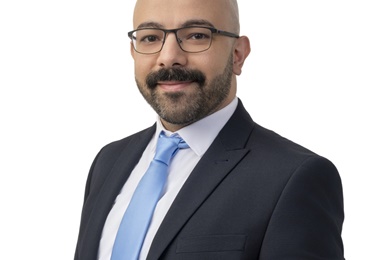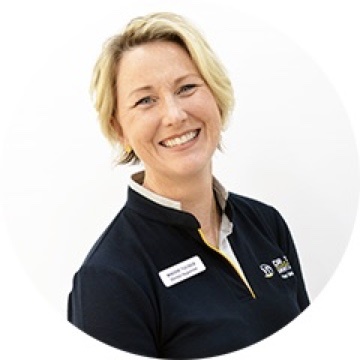Continuing professional development (CPD) myth-busting: Helping DCPs navigate their CPD requirements in 2025
Written by Fiona Ellwood, Rhiannon Jones, Debbie Hemington, James Neilson, Donna Campbell, Clare Faulkner and Jennifer Dutton from the Dental Professional Alliance (DPA).
Removal from the register is the last thing any dental professional wants, especially if it’s down to a misunderstanding or misinterpretation of the CPD rules, or a simple mistake. As members of the DPA, we are keen to foster a myth-busting approach in the hope that all membership groups will benefit from this, and that other key stakeholders will adopt a similar approach. Together with the GDC, we have revisited the original myth-buster from June 2024 and have updated it for this year’s annual renewal period for dental care professionals.
Year after year, we find that some registrants are removed from the register unnecessarily, causing inconvenience, stress, and anxiety. Those who are removed are unable to continue with patient-facing care or treatments until they are restored. This can disrupt the provision of dental services and inevitably, patient outcomes. Given the ongoing challenges of both recruitment to the profession and the constant reminders of a lack of access to some aspects of dentistry, addressing any CPD issues must be a priority to help make sure dental professionals who want to stay on the register can do so.
New this year – what’s changed?
The GDC has recently reviewed the existing CPD scheme after some research and feedback from stakeholders. They identified some areas of the scheme where they can be more flexible, and simplify the language and the process for the benefit of dental professionals. As a result, they revised the guidance documents and webpages that dental professionals use when they come to declare their CPD.
While the scheme and its rules have not changed, the updates they’ve made help to highlight where the scheme is now more accessible and flexible for dental professionals, especially when undertaking, recording, and submitting CPD.
Why the myth-buster?
The DPA acknowledges that many of the challenges within the current CPD system are defined by the changes that came into effect on 1 January 2018. To support DCPs in making their statements, we have been exploring what can be done, rather than what cannot be done. One of the shorter-term solutions was to compile a myth-buster. This has been put together using some of the challenges expressed by the membership groups within the DPA. These are as follows:
| Question | Myth-buster answer | |
| 1 | What quality measures should I look for from a CPD provider? | You should ensure the provider makes clear what their quality measures are: pre, during and post event to include the assessment type and that they provide the quality assurance statement on the final certificate. |
| 2 | What should be on my CPD certificate? | Certificate of attendance, name, topic, date and year, aim/s, separate objectives, learning content, and GDC development outcomes met in the session. Confirmation from the provider that the information provided is full and accurate, with a statement saying: “This CPD is subject to quality assurance by (name of person or body)”. Registration numbers are helpful to have but are no longer required on certificates. |
| 3 | When do I need to apply for a grace period? | If you are struggling to meet your hours in the final year of your cycle, you can apply for a grace period (an additional 56 days) during the final six months of your cycle (this is from 1 February for the wider dental team.) It will take effect from 1 August if it is granted. The next CPD cycle then begins as normal. If you do not meet the requirements by the end of the 56 days, you may be removed from the register. |
| 4 | Do I still need to complete 10 CPD hours if I am moving from one cycle to a new one? | The two-year period between one cycle finishing and another starting is subject to the 10 hours of CPD in every two-year period, the 10 in 2, rule. For year one of a new five-year cycle, you will still need to make sure you have completed 10 hours of CPD moving from year five of your previous cycle into year one of your new one. |
| 5 | Does the GDC consider exceptional circumstances? | No. The GDC always uses the 10 in 2 rule, so if you have a zero year because of difficult circumstances they will expect 10 hours on the year either side. A grace period may be requested in the final year of the cycle to give you a bit more time to complete anything you need, but this cannot be applied retrospectively. The Registrar has discretion to consider exceptional circumstances in an erasure case. |
| 6 | Keeping up with CPD when you are on maternity leave or a career break? | You can submit a zero year for CPD, but the GDC will expect 10 hours on the year either side. There is no stipulation how you complete these 10 hours, so online platforms are generally the easiest if you want to get some hours in and face to face is difficult. |
| 7 | I didn’t complete my last CPD cycle due to personal circumstances. Do I still need to complete my hours? | If you take an absence from work but want to maintain your registration, you’ll need to keep up with your CPD. The requirement to complete CPD is based on your registration rather than your employment. If you were to not complete the rest of the cycle, you would not meet the GDC requirements if sampled. |
| 8 | Does the GDC need a copy of my Personal Development Plan (PDP)? | If you are selected for sampling, you will be contacted and required to submit your: PDP, your log of completed activity and the evidence collected. You will be given a date to return it. |
| 9 | Will I be removed from the register if I cannot complete the required amount of CPD before the deadline? | Yes, you will be removed from the register and will have to apply for restoration via eGDC. You will also need to pay the restoration fee. |
| 10 | How likely is it that I will be inspected? | The GDC can randomly select dental professionals to check their records at any time during the CPD cycle. They can carry out sampling up to five years after your cycle is complete. |
| 11 | When do I need to declare my CPD statement? | Within 28 days of the end of the relevant annual renewal period. So, 28 August for the wider dental team. |
| 12 | I have just registered, when do I need to begin my CPD? | You are required to begin your CPD cycle at the start of the next cycle, which for DCPs is 1 August. |
| 13 | Are there recommended topics and numbers of hours per topic? | The GDC recommends:
|
The myth-buster is a stark reminder that sometimes a lack of understanding or misinterpretation can catch you out. Not having a full understanding of CPD provider guidelines can present some challenges too, but more than anything, life events can sometimes throw registrants a curve ball, no matter where you are in your CPD journey.
There is a chance, no matter how slight, that this could lead to any one of us being removed from the register. We hope that this myth-buster can become a mechanism that registrants will fall back on, in the hope that unnecessary removals from the register become a thing of the past.
Myth-busting spotlight on: Grace periods – not the silver bullet, but still important
Many registrants are unaware of the grace period and what this means for them. This, of course, can only be granted by an application to the GDC (via eGDC or via email) and no earlier than six months before the end of your CPD cycle (from 1 February of the fifth year). This application will need to be accompanied by an explanation, covering details such as exceptional circumstances. If the grace period is granted, you will be given an additional 56 days (eight weeks) to complete your CPD hours. It is important to remember this is only available to registrants in the last year of their cycle.
 eGDC
eGDC





















